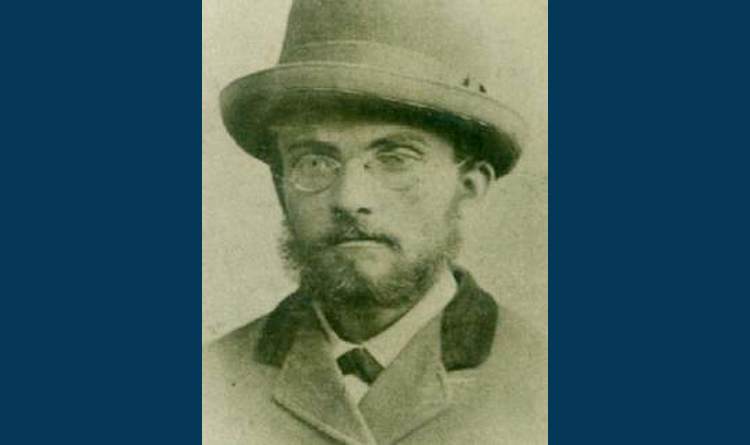August 19, 1856
Jewish writer and scholar Michah Joseph Berdichevski (1856-1921) is born in Ukraine. He is descended from a long line of Hasidic rabbis.
He receives a traditional Hasidic education but becomes intrigued by the secular world of the Haskalah, the Jewish Enlightenment. His fascination with the secular and non-Jewish world disturbs his father-in-law, who demands that Berdichevski divorce his daughter. Berdichevski continues to study religious texts in yeshiva but attempts to integrate the religious Jewish and secular worlds in his writing.
He writes and publishes fictional stories and novels and nonfiction articles and essays. His fiction often features protagonists caught between the appeal of the modern European world and traditional religious obligations, paralyzed by the tension between desire and responsibility. He ultimately goes to Germany and Switzerland, where he obtains a doctorate and is profoundly influenced by Nietzsche. This split — between the Old World and the New, between shtetl provincialism and worldly sophistication — is reflected in the languages in which he writes. His Yiddish writings are intended for a naïve, familiar audience, while his German writings are dense and scholarly and assume no knowledge of Jewish life.
Berdichevski is perhaps best known for his Hebrew writings, which include his lengthy debate with Ahad Ha’am about the nature of Hebrew literature and his extensive recording of Jewish folklore. Berdichevski vehemently disagrees with Ahad Ha’am’s assertion that Hebrew writing does not require a secular literature and that enlightened Jews can turn to Europe for cultural satisfaction. Their written debate spans two years, and Berdichevski’s refusal to compromise inspires numerous younger Hebrew writers.
Insistent on the cultural richness of Jewish life and narrative, Berdichevski spent the last years of his writing life compiling Jewish folklore.
In 1920, Berdichevski learns that his father and brother have been murdered in pogroms in Ukraine and that the shtetl where he grew up has been destroyed. He dies one year later, in 1921, in Berlin. His writings have been archived and are available today in Holon, Israel.









